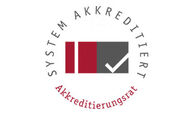After the degree of the project a guideline will be available, which should support universities in the future to integrate a plagiarism detection software sustainably into the university operation under consideration of all basic conditions.
The guideline will be based on the practical experience gained with the plagiarism detection software used at the various university locations during the project implementation and will equally take into account all organizational processes required for a holistic implementation of the plagiarism detection software.
To ensure that the guidelines cover the widest possible range of experience and thus take into account the different needs and framework conditions of other universities, one plagiarism detection software will be implemented, tested and evaluated at each of the participating universities in the consortium. The University of Cologne will coordinate the evaluation of the plagiarism detection software used. The local framework conditions for the use of the plagiarism detection software developed during the project implementation as well as the results of the software-based plagiarism examinations will all be included in the guidelines.
In the testing of the plagiarism detection software used, the function of an LMS PlugIn takes on an important role. By installing a plugIn of the plagiarism detection software into the familiar infrastructure of an LMS, the use of the plagiarism detection software can be optimized and integrated into already existing workflows. The university of applied sciences Dortmund will coordinate the integration of the PlugIn into existing LMS.
Background
In the preliminary project PlagStop.nrw , surveys were conducted in the form of guideline-based expert interviews as well as a state-wide online survey. The surveys aimed to determine the current state of dealing with plagiarism at the state universities and the potential use of software solutions for identifying plagiarism. The surveys revealed that there is a great demand for software solutions in particular, as the large number of student papers and a highly differentiated source situation make it difficult to track all sources by hand. Despite initiatives to introduce plagiarism detection software, many university campuses usually do not use it in the long term because there is usually a lack of uniform and systematized processes for using and handling it.
This is where the main project PlagStop.nrw comes in - Based on the results of the surveys, a primary goal of the main project is to support universities in the holistic implementation of a software system to prevent plagiarism in a sustainable and efficient way. Processes and framework conditions are to be created that reduce the amount of work involved in implementing plagiarism detection software and optimize its use.


















